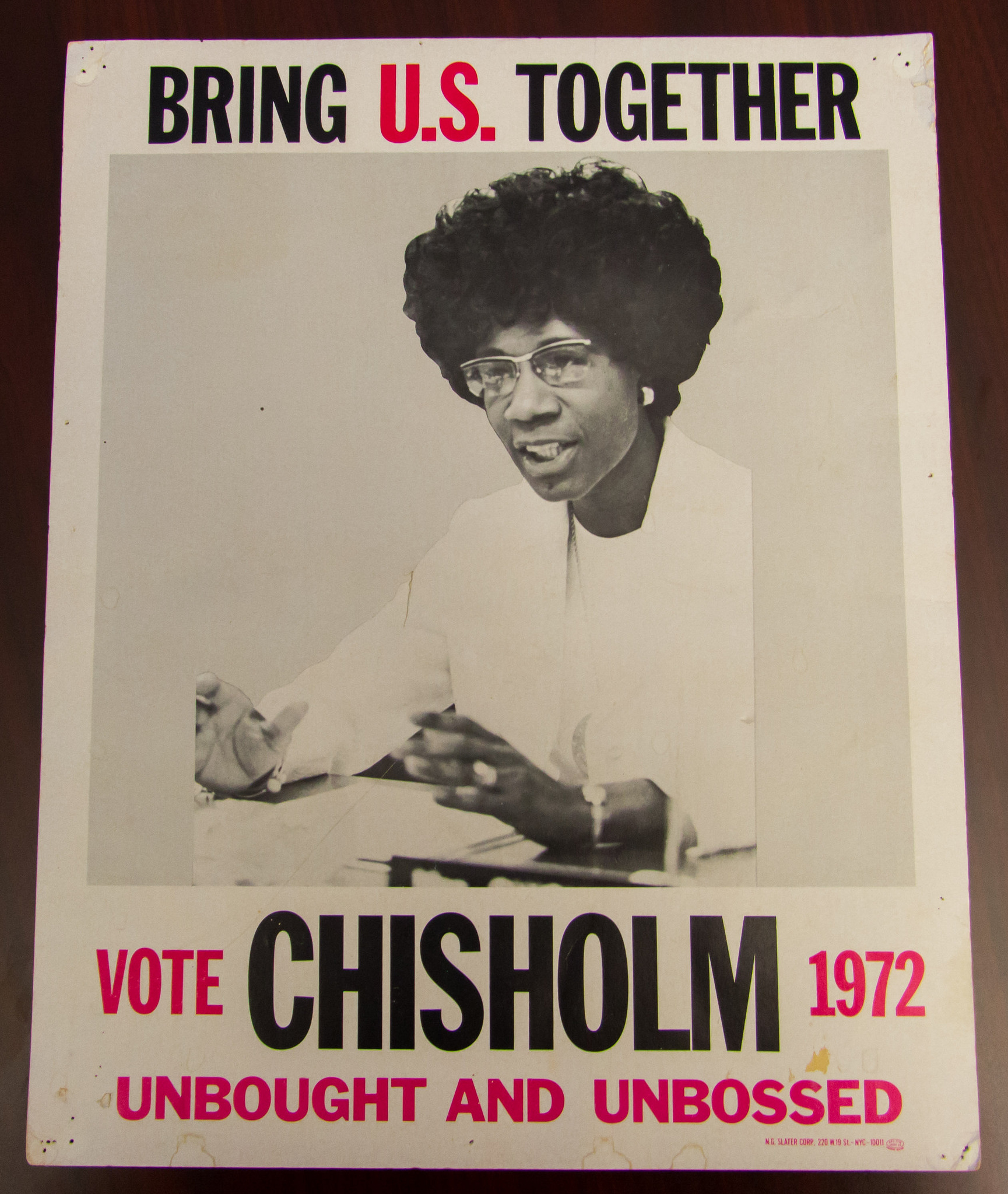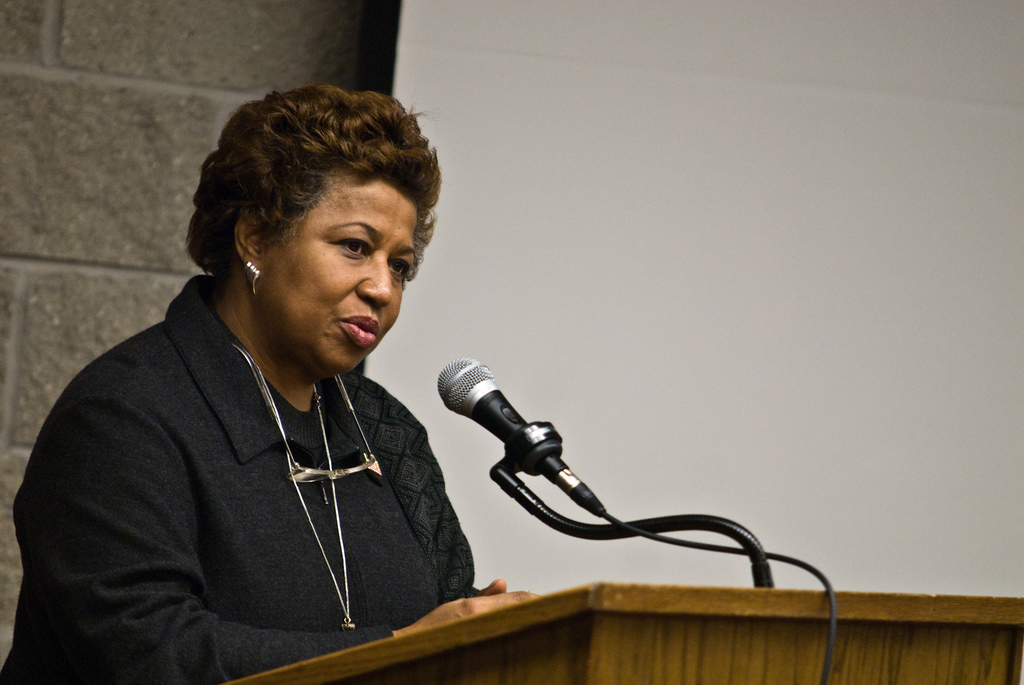Women Have Been Running For President Since Before They Could Even Vote
Hillary Clinton could become the first female president in history. But she won't be the first woman to have tried.
Hillary Clinton could become the first female president in US history. But she won’t be the first woman to have tried.
Several women have run for the top job in American politics, beginning long before they were even allowed to vote. (Women got the right to vote in 1920.)
Still, there remains a massive disparity between the numbers of men of women in leadership positions—in politics as well as a range of other fields including private companies, the law, and education. The imbalance is the subject of a report released this week by the American Association of University Women.
Although there is some debate about exactly what counts as “running for president,” these women—14 in all—made the attempt within the restrictions of their era:
Victoria Claflin Woodhull, in 1872
Woodhull and her sister were the first women to open and run a brokerage on Wall Street. They also founded a newspaper. She campaigned for president in 1872, having been selected as a representative of the Equal Rights Party, which campaigned for women’s suffrage. Her campaign was dogged by financial troubles, and she was arrested the day before the election for publishing an “obscene” article about another politician. Also, at 34, she was ineligible to become president on Inauguration Day because she wouldn’t have reached the 35-year age limit. At least one woman was arrested and fined for trying to vote for Woodhull.
Belva Ann Bennett Lockwood, in 1884 and 1888
Lockwood was an attorney and the first woman to practice in the Supreme Court. She also represented the Equal Rights Party, and there is dispute about how many votes she received. (Women still couldn’t vote.) So if she received close to 5,000 votes during her first run, as some sources suggest, they all came from men.
Margaret Chase Smith, in 1964
Smith was the first woman to win election to both the House and the Senate. She had already been a politician for 24 years when she announced her intention to run for the presidency on the Republican ticket. Smith made her name as a moderate Republican, famous for denouncing McCarthyism in a career-defining speech(pdf) to the Senate, in 1950.
Patsy Takemoto Mink, in 1972
Mink had become the first woman of color to be elected to Congress, in 1965. In 1972, she sought the Democratic nomination, running on an anti-war platform. She wasn’t successful, but was re-elected to Congress 13 times, the last in 2002. That year, she contracted pneumonia and died during the election campaign. Her name remained on the ticket, and she was re-elected.
Shirley Chisholm, in 1972

In 1968, declaring herself “unbought and unbossed,” Chisholm became the first African-American in the House of Representatives. She was outspoken, denouncing the Vietnam War in her first floor speech in 1969. In 1972, she declared her candidacy for the Democrats, eventually receiving 10% of the votes. In 1974, a Gallup Poll listed her as one of the top 10 most-admired women in America.
Ellen McCormack, in 1976 and 1980
McCormack ran for the Democrats almost solely on a single issue:opposing abortion. She raised over $500,000 in campaign finance, making her the first woman eligible for federal match-funding. Her persona was as an “ordinary” housewife, mother, and grandmother.
Sonia Johnson, in 1984
Johnson was a Mormon and a mother of four, who was prompted to enter politics when her church spoke out against the 1972 Equal Rights Amendment (which she supported). In 1984 she was nominated to run for the presidency by two minor parties, the US Citizens Party, and the Peace and Freedom Party. She was the first candidate outside of the two main parties to qualify for federal financing.
Patricia Schroeder, in 1988
An outspoken liberal, Schroeder had a 24-year career in the House of Representatives, campaigning on arms control and women’s reproductive rights. She announced her intention to run for the Democratic nomination, but withdrew not long after.
Lenora Fulani, in 1988 and 1992
A psychologist and activist, Fulani is a long-time campaigner against America’s entrenched two-party system. In 1988, she became the first woman and first African American to appear on the ballot in all 50 states and the District of Columbia.
Elizabeth Dole, in 2000
Dole, a Republican, was the first woman to serve in two cabinets in two different positions. She sought the presidential nomination in 2000, the election cycle after her husband, Bob Dole, lost the vote to Bill Clinton in 1996. She withdrew her candidacy after a seven-month effort which raised $4.7 million. George W. Bush, who eventually won the presidency, had raised $57 million.
Carol Moseley-Braun, in 2004
Moseley-Braun became, in 1993, the first African-American woman in the Senate. Later, she was also the first woman to serve on the powerful Finance Committee after a Democratic senator gave up his seat in her favor. Her time in office was dogged by controversy, and she lost to a Republican rival in her bid for re-election. She entered the race to become the Democratic nominee for the presidency in 2004 but dropped out early on and endorsed Howard Dean.

Michele Bachmann, in 2012
Bachmann, a tax attorney and Tea Party founder, sought the Republican nomination in 2012, but eventually withdrew after a poor performance in Iowa.
Carly Fiorina, in 2016
The former CEO of tech firm Hewlett Packard, Fiorina campaigned for the Republican nomination in 2016, initially performing well. She withdrew in February 2016, later endorsing Ted Cruz for the nomination.
Hillary Rodham Clinton, in 2008 and 2016
Clinton first sought the Democratic nomination in 2008, losing to Barack Obama. She later served in his cabinet as Secretary of State. Her popularity has fluctuated during her years in the spotlight as a high-profile elected official, cabinet member, and wife of former president Bill Clinton. She is the most successful female US presidential candidate so far in history, in terms of both funding and party delegates for a major party nomination. And in polls that pit her against the Republican nomination front runner, Donald Trump, she is the likely winner.






